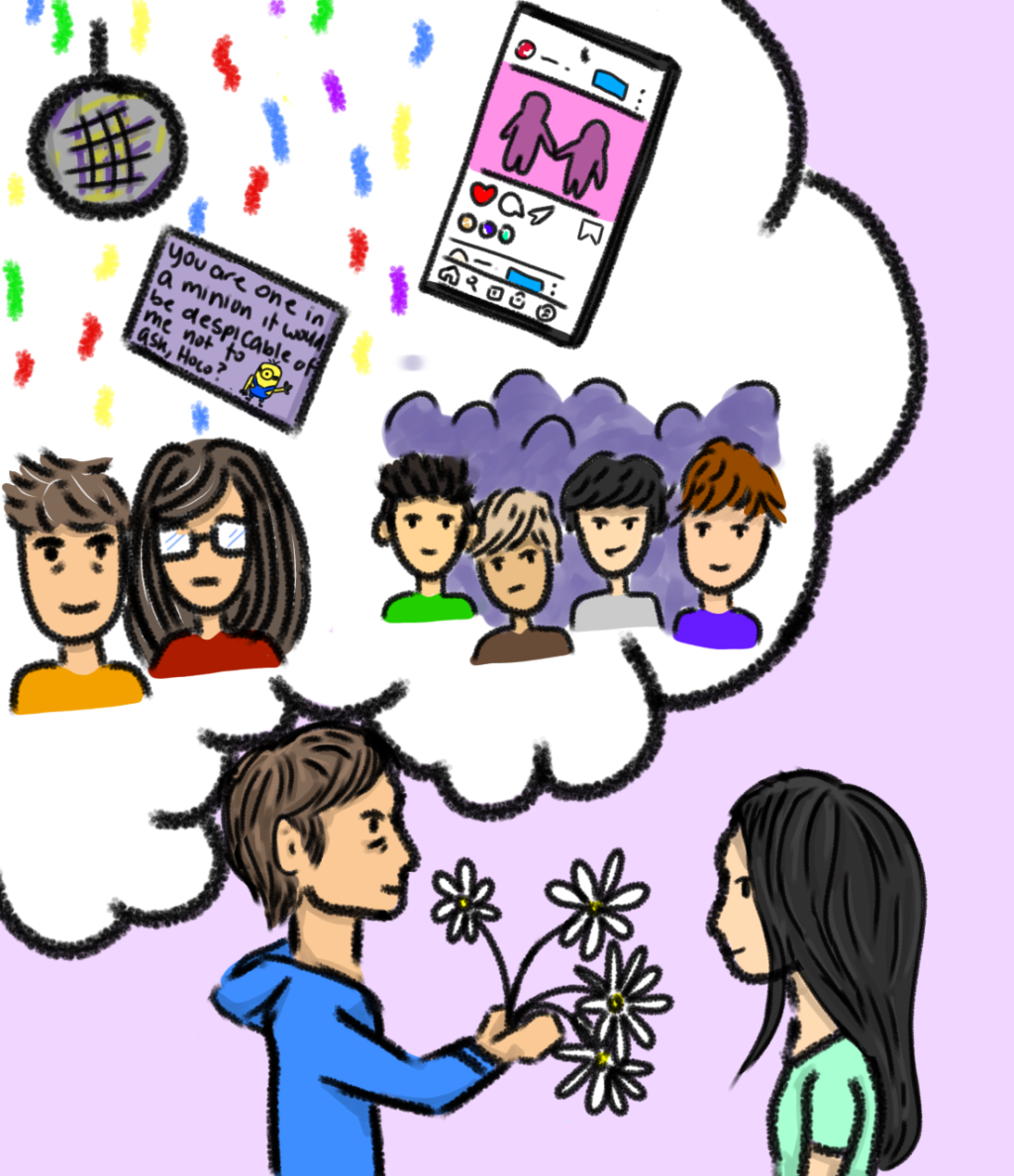
Many students may hear their friends talk about dating, see couples holding hands at lunch and watch films that suggest a prevalence of dating among teens. These circumstances, among others, can place pressure on students to date in high school.
This pressure can intensify with school dances.
“People usually feel sort of strange if they don’t have someone [to go with],” said freshman Leilani Tsao. “Not everyone necessarily wants to have a partner but they feel like they have to.”
Even with the expectation of taking a date to a dance, going to dances with a group of friends is still common.
“[Dating is] how you ‘assert your dominance’ among your friends or your ‘rizz’”
“[School dances] are allotted as a thing that couples do,” said English teacher Gary Mitchell. “I know that friends go as groups to dances as well.
Parents can also impact on high school relationships.
“My dad was a little bit uncomfortable thinking about me dating,” said junior Abigail Lee. “My mom, for some reason, was super enthusiastic about it.”
Similar to family, friends can influence people differently. Some feel no pressure, while others are influenced by their friends to date.
“I feel like there’s a certain culture around having to find a partner,” said sophomore Calvin Hong. “That’s how you ‘assert your dominance’ among your friends or your ‘rizz’ and whatnot.”
In addition to social pressure to date, the media also creates an environment where dating is common or even expected, including on social media, film or TV.
“You are seeing more couples in the media, which can add this pressure on kids to partake in trying to find romantic relationships,” Mitchell said. “It is very much in the media that you have to do it in high school.”
“I don’t think I’ve ever seen a piece of media that has realistically portrayed relationships”
However, the media often portrays romantic relationships in a way that can be inaccurate and out of touch with reality.
“If you look at books or movies, there’s all the rom-com nonsense, like you have to find a man and it’s happily ever after when relationships in actuality are more complicated,” Hong said. “There [are] ups and downs, and you need to work out your problems. I don’t think I’ve ever seen a piece of media that has realistically portrayed relationships.”
Speaking on his experience in high school, Mitchell believes that media and societal pressure to date have always been present, but one change stands out.
“The main difference is the acceptance and abundance of non-heterosexual relationships, relationships that fall within the LGBTQ community,” Mitchell said.
Even with the pressure that some high schoolers feel to find a partner, many believe that high school dating is not in the pursuit of a long-term relationship.
“In general, most people are probably not looking for a long-term relationship,” Hong said. “We’re all young [and] we have many more years to live. We shouldn’t be committing so early on unless we’re super sure.”
While some are reluctant about short-term relationships, they notice that it has become normalized.
“I don’t want to just have a bunch of short-term relationships,” Lee said. “It would be really hard emotionally, but observing those around me, it’s pretty normal for relationships to be short-term.”
The increased pressure to date from friends, media and family along with differing perspectives on teenage romantic relationships, shapes Aragon students’ dating experience in high school.



